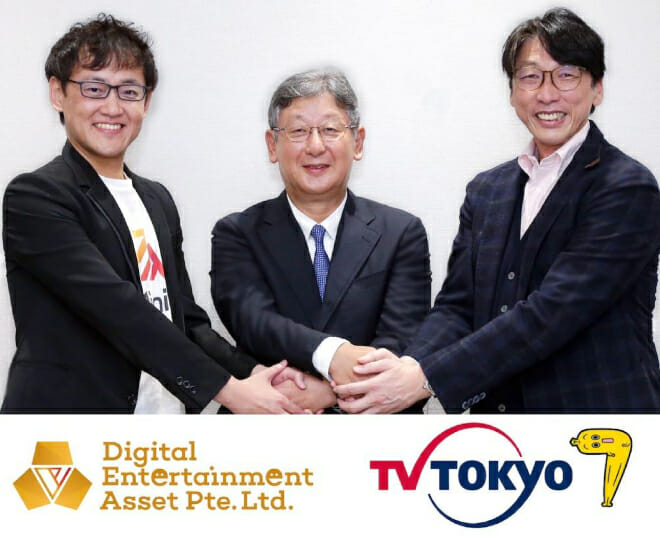
Source: news.google.com

Web3, the umbrella term for decentralized internet services including cryptocurrency, blockchain and NFTs, has taken the world of finance and technology by storm, but elsewhere it remains largely underground. Of course, artistic NFTs (or PFPs) maintained their appeal through most of 2021 and most of 2022, when the NFT market grew to US$25 billion in trading volume. This pace continued through 2021, but has lost momentum significantly since May of this year. Data from DappRadar shows that volumes fell to about $700 million in October, compared to the highs of late 2021 and early 2022.
However, one sector of the NFT ecosystem has continued to gain ground from its inception until now. Web3’s killer use case is NFT gaming, often called “GameFi” (game finance) by those in the know. These games allow players to earn tangible NFT assets through gameplay, which they can then sell for a profit on the market.

While not yet widespread, “Play and Win” NFT games that reward players for their time are becoming more popular in many countries, especially in the eastern hemisphere of the world. According to a 2022 NFT Gaming Statistics report published by search.com, India leads the GameFi world with 33.8 percent of respondents having played an NFT game. Hong Kong, the United Arab Emirates, the Philippines and Vietnam follow in the top five. Additionally, more than 10 percent of respondents from Southeast Asia, South America, and Africa said they planned to try NFT gaming in the near future.
In Japan, where television still reigns supreme, major television station TV Tokyo is taking steps to promote Web3 content, including NFT games, to a general audience. They have partnered with a Singapore-based GameFi company, Digital Entertainment Asset (DEA), operator of metaverse entertainment platform and PlayMining NFT games, to help create educational content related to Web3.

“Unfortunately, cryptocurrencies and Web3 have a bad image of being insecure and associated with scams. Our goal is to change that,” said DEA co-founder and co-CEO Kozo Yamada. “Through our business alliance with TV Tokyo, we will promote the many advantages of Web3 technology by creating unbiased educational television content that highlights the great potential of Web3 with real case studies of innovations with other industry leaders.”
TV Tokyo, a subsidiary of Nikkei Inc., specializes in popular Japanese animation, among other content. TV Tokyo President and Representative Director Ichiro Ishikawa said the partnership with Web3 would allow TV Tokyo to create content that is useful to everyone and break into new business sectors.
DEA has also recently signed a memorandum of understanding for a separate Web3 collaborative partnership with global Internet services giant Rakuten Group. In particular, Rakuten was one of the first movers on Web3 – they operate the Rakuten NFT marketplace and the Rakuten Wallet crypto trading exchange. Their association with DEA will lead to collaborative synergies between the two companies to improve their services.

In addition, DEA received a minority investment from Rakuten Capital. Hiroshi Takasawa, President of Rakuten Capital, pointed to DEA’s proven track record in the Web3 domain and experienced management team as major drivers of investment.
DEA Co-CEO Yamada, who began his career as a television producer at TV Tokyo for 15 years, is also an influencer in the Japanese NFT space. He operates the “NFTv” Youtube channel and “NFT navi” web media, and is the creator of the NFT Awards. He co-founded DEA in 2018 with video game production veteran Naohito Yoshida, a serial entrepreneur who previously made an initial public offering on three companies.
DEA’s PlayMining platform has its own token, DEAPcoin ($DEP), which was the first officially approved Play-to-Earn token by the Japan Financial Services Agency. EPD can be earned by playing PlayMining’s growing catalog of casual NFT games (current titles include Job Tribes, Cookin’ Burger, Menya Dragon Ramen, and Graffiti Racer) and spent on the PlayMining NFT marketplace. Many NFTs for sale can be used directly in games, and the marketplace also features premium collectible NFTs from famous artists in the Japanese anime and video game industries. A metaverse initiative for the platform is also in the works.
While game developers traditionally lose a lot of value to intermediaries, Web3 helps them retain it.
DEA pays royalties to creators on PlayMining NFTs and helps with IP monetization for third-party studios that release NFT games on the PlayMining platform.

“There is a lot of potential in the Web3 industry,” Yamada said. “Innovations in digital asset ownership and interoperability will appeal to mainstream users. For example, for the scholarship models in Play-and-Earn, in-game items in the form of NFT assets are rented to new players (“scholars”) so that initial NFT costs are not a barrier to entering the game. This is helping to attract a lot of non-gamers to Web3 games.”
“With interoperability, in-game NFT assets can be moved between different games operating on the same blockchain and potentially even to other blockchains in the future,” he added. “This means that we can use the same game elements or your favorite characters in multiple game worlds. Players will naturally understand the value of interop because they spend hours leveling up their characters in games. Being able to own characters in-game as an interoperable digital asset opens up a whole new potential for rewards and new forms of entertainment!
For more lifestyle reading, click here.
Read More at news.google.com